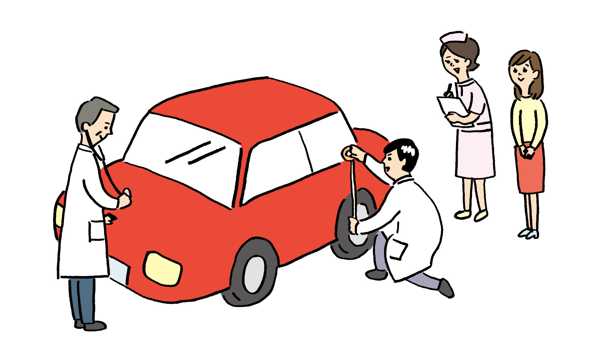【車検が近い方必見】安くて安心・即日対応の車検サービス|無料見積もり・WEB予約受付中!
Finding an Osteoporosis Doctor: Your Guide to Expert Bone Health Care
When it comes to managing osteoporosis, finding the right doctor can make all the difference. An experienced specialist doesn’t just treat symptoms—they help uncover the causes of bone loss, offer clear guidance, and provide a personalized plan to strengthen your bones and protect your health. If you're unsure where to begin, this guide will help you navigate your journey with confidence.
When it comes to managing osteoporosis, finding the right doctor can make all the difference. An experienced specialist doesn’t just treat symptoms—they help uncover the causes of bone loss, offer clear guidance, and provide a personalized plan to strengthen your bones and protect your health. If you're unsure where to begin, this guide will help you navigate your journey with confidence.

What Is Osteoporosis?
Osteoporosis is a condition where bones gradually lose their density and become more fragile, increasing the risk of fractures. Often called the “silent disease,” it can progress without noticeable symptoms until a bone breaks—typically in the hip, spine, or wrist. Early understanding and diagnosis are crucial for prevention and treatment. While age plays a role, other factors such as genetics, hormonal changes, and lifestyle habits also significantly contribute to bone health.
Choosing the Right Specialist
Selecting a qualified osteoporosis doctor is a critical step in your treatment journey. Specialists to consider include:
Endocrinologists – Focus on hormonal factors affecting bone density
Rheumatologists – Specialize in autoimmune and inflammatory conditions that may impact bone health
Geriatricians or Internal Medicine Physicians – Often experienced in treating age-related bone issues
When choosing a doctor, look for:
Experience with osteoporosis cases
Positive patient feedback
Clear and empathetic communication
A collaborative approach to care
A doctor who listens, explains treatment options, and involves you in decision-making will help create a plan that fits your lifestyle and health goals.
Important Questions to Ask Your Doctor
Being prepared for your appointment helps you get the most out of your visit. Here are some essential questions to consider:
What experience do you have treating osteoporosis?
What tests do I need, and how will the results be used?
What are my treatment options?
How can diet, exercise, or supplements support my bone health?
How often should my bone density be monitored?
Are there any risks or side effects to the recommended treatment?
Having an open, honest dialogue helps ensure your concerns are heard and your treatment is tailored to your needs.
Building a Strong Support Team
Osteoporosis care often involves more than one provider. A team-based approach can significantly enhance your outcomes. Depending on your needs, your care team may include:
Physical Therapists – To develop safe, bone-strengthening exercises
Dietitians or Nutritionists – To create a bone-friendly nutrition plan rich in calcium and vitamin D
Pharmacists – To help manage medications and supplements
Together with your specialist, these professionals create a comprehensive care plan to maintain and improve your bone strength over time.
Finding a Qualified Osteoporosis Doctor Near You
You don’t have to search alone—finding the right doctor is easier than you might think. Try these resources:
Hospital and clinic websites – Many offer directories of specialists
Online platforms – Sites like Healthgrades or Zocdoc allow you to search and compare osteoporosis specialists in your area
Primary care physician referrals – Your general doctor can often recommend trusted specialists
Telemedicine – Virtual visits make it easier than ever to access expert care, even from home
Frequently Asked Questions
What are the main risk factors for osteoporosis?
Age (especially post-menopause), being female, family history, low body weight, calcium or vitamin D deficiency, and lifestyle habits such as smoking or excessive alcohol use.
How is osteoporosis diagnosed?
The most common test is a bone density scan (DEXA), which measures bone mineral density and helps predict fracture risk.
Can lifestyle changes really improve bone health?
Yes. A healthy lifestyle—including weight-bearing exercise, proper nutrition, and avoiding smoking—can prevent further bone loss and improve strength.
Conclusion
Finding the right osteoporosis doctor is the first step in taking control of your bone health. With the guidance of a skilled specialist and a supportive care team, you can manage the condition effectively and maintain an active, healthy lifestyle. Don’t wait for symptoms to worsen—take action today and move confidently toward stronger bones and a better future.











